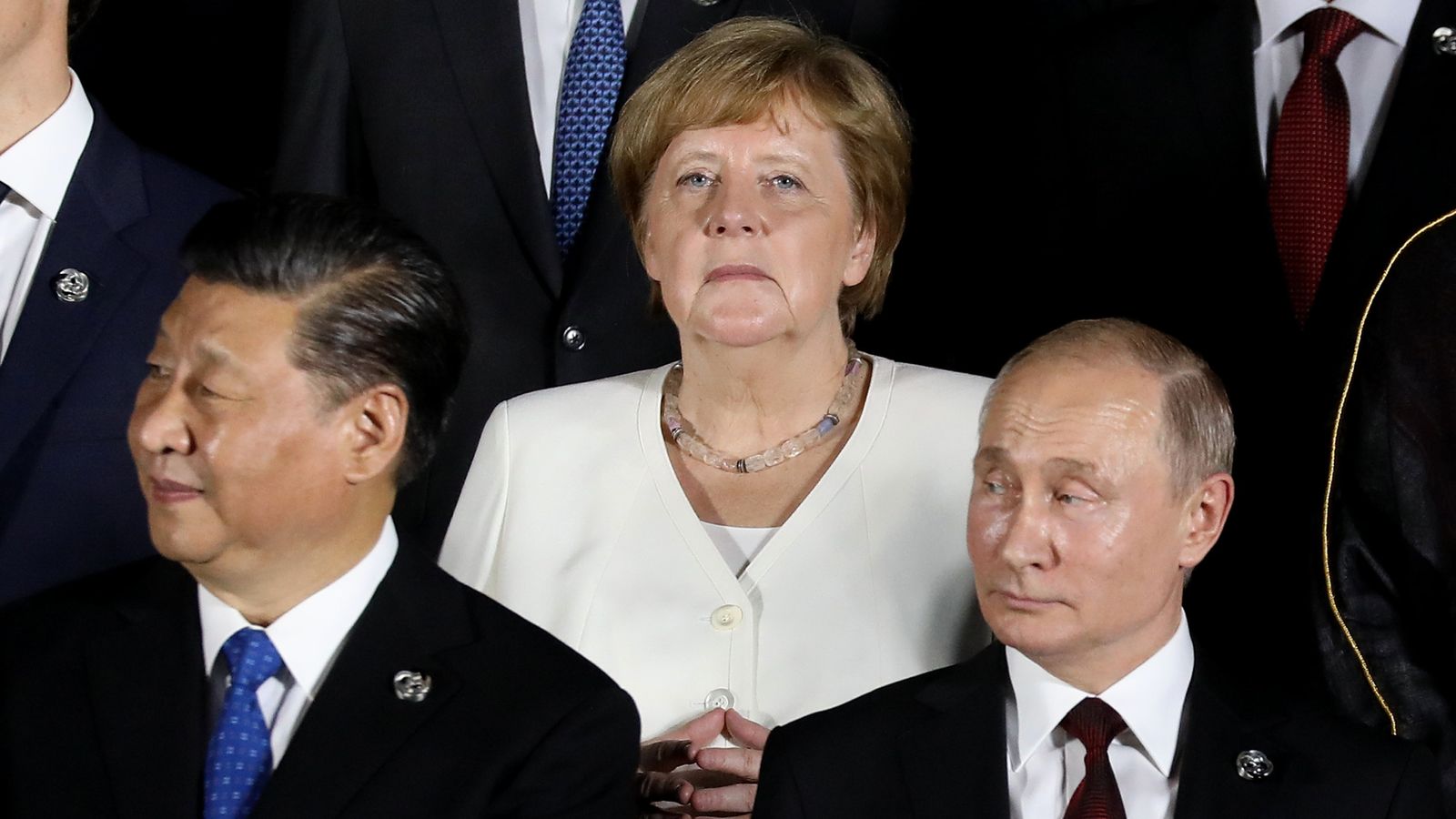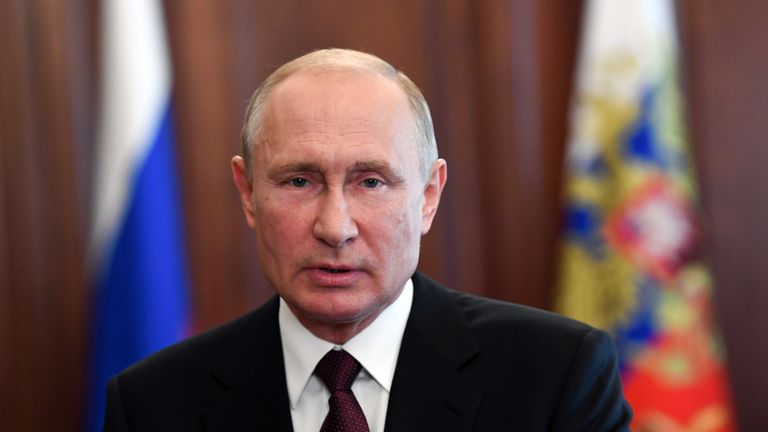Germany has become a key target for Chinese and Russian interference and influence, putting Europe’s largest economy on the “frontline of a new Cold War”, a study has said.
Poor relations between US President Donald Trump and German Chancellor Angela Merkel have exacerbated Berlin’s sense of exposure to potential dangers from Beijing and Moscow, according to the Royal United Services Institute (RUSI) paper released on Wednesday.
“Germany is on the frontline of Russian and Chinese hybrid actions of interference and influence in Europe,” wrote its author, John Kampfner, a journalist and senior associate fellow at RUSI.
“The tactics used by both China and Russia vary,” he wrote.
“Russia’s activities are largely political, attempting to undermine public confidence in democratic institutions. China’s have been focused mainly on economic assets.”
It means one of the most urgent tasks facing whoever is chosen as a candidate to replace Mrs Merkel when she steps down next year will be a review of Germany’s vulnerability towards China and Russia, according to the document.
“Germany is on the frontline of a new Cold War,” according to the study, entitled: “Russia and China in Germany”.
“This 21st century equivalent is a new variant, reflecting changes in technology and other practices, in geostrategic configuration and also in Germany’s role.
“The tension and threats facing Germany are increasing. They are a microcosm of global challenges.
“The country faces a series of political and economic-based hazards emanating from China.
“It faces different dangers from Russia, revolving mainly around cyber security, but by no means confined to that. And with President Donald Trump well into his fourth year as president, it no longer feels it can rely on the US to underpin its security,” the report said.
Mr Kampfner observed how Germany had become heavily export dependent upon China and tracked a rise in Chinese takeovers of German companies – something that Berlin is belatedly cracking down on, despite pushback from the business community.
“A number of Chinese takeovers, successful or resisted, of medium-sized Mittelstand companies, the engine room of the German economy, has led to a shift in position and in perceiving China as a strategic competitor,” the paper said.
With Russia, it noted the geographical and psychological proximity to Germany, particularly in the east.
The paper said what President Vladimir Putin “and his sophisticated propaganda machine have managed to do is to decouple Russia from the record of Soviet communism in East Germany”.
:: Listen to Polonium and the Piano Player on Apple Podcasts, Spotify, Google Podcasts, Spreaker
“Russia has used German political parties to further its strategic goals. Support for the two extremes – Alternative für Deutschland (AfD) on the right and Die Linke on the left… have steadily grown in support and influence throughout Germany,” he wrote.
Mrs Merkel has taken a strong position on what she sees as Russia’s hostile activity such as the 2014 annexation of Crimea, helping to push through sanctions in the European Union where a number of other member states are more sympathetic towards the Kremlin.
But, the paper noted: “The poor relations between Mr Trump and Mrs Merkel have exacerbated Germany’s sense of vulnerability to potential dangers from China and Russia.
“Those relations have led to an increased sense of moral equivalence among Germans towards Russia and the US, according to polls.”
The paper concluded that three key events could shape the future of European and Western stability – the US presidential election; the election of a new leader of Mrs Merkel’s party – the CDU – and likely candidate for chancellor and the next German federal election.

